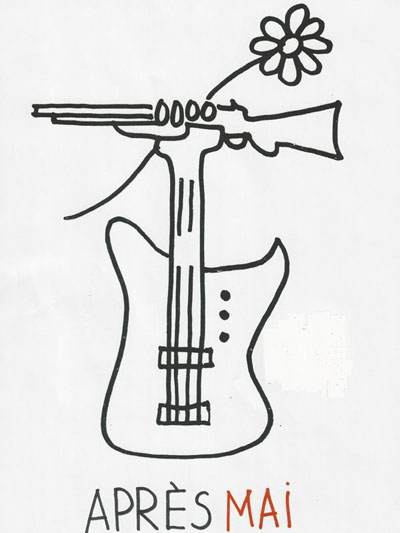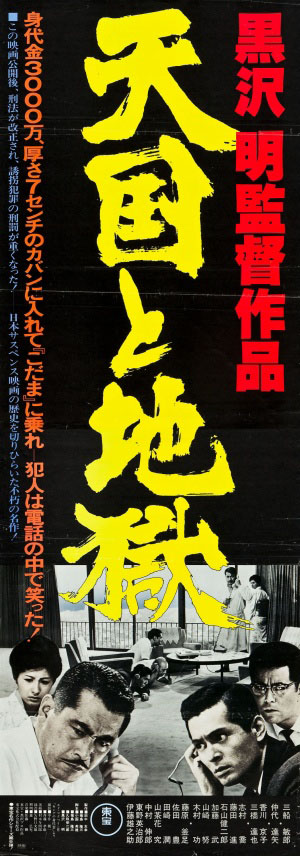We begin in Vienna today because the Austrian Film Museum is launching a complete retrospective of the work of Olivier Assayas. The occasion is the publication of two books, the first entitled simply Olivier Assayas, the second being a memoir by filmmaker, A Post-May Adolescence. Letter to Alice Debord. Kent Jones has edited the first volume, collecting essays by the likes of B. Kite, Howard Hampton, Greil Marcus, Geoffrey O’Brien, Glenn Kenny, David Phelps and more. Columbia University Press will begin international distribution of both volumes in July.
The Museum: “Between his first feature Désordre (1986) and such major works as Irma Vep (1996), Les Destinées sentimentales (2000) demonlover (2002) and, most recently, L’Heure d’été (2008) and Carlos (2010), he has charted an exciting and highly dialectical path, ’embracing narrative and character, dealing with the fragmentary reality of life in a global economy, and, at the same time, crafting what amounts to an ongoing, passionate spiritual autobiography.’ (Kent Jones). Or, in the words of the filmmaker: ‘I believe that in art you can move from the intimate to the universal. You can make movies that deal with what is going on within yourself, which is part of commonly shared human experience, and simultaneously you can make movies that are open to what happens in the big world around you, that deal with history, with the geo-politics of your time.'”
New York. MoMA’s Werner Schroeter retrospective, the most complete yet in North America, opens today and runs through June 11. Marion Lignana Rosenberg for Capital New York: “Much admired in Europe (especially France), Schroeter worked largely outside of the institutional film industry, which is one reason why so much of his work was never distributed in the United States and remains hard or impossible to find on DVD. In their themes and techniques, his films vary wildly: some depict political and social realities in a fairly straightforward manner, while others are opaque and arty in the extreme, unfolding with the spellbinding unreason of freak shows or nightmares.” Earlier: Mónica Savirón in the Brooklyn Rail.
San Francisco. “The word that comes to mind when thinking of Elliot Lavine’s semiannual film noir programs at the Roxie is inexhaustible,” writes Max Goldberg in the Bay Guardian. “With 30 films packed into 14 days, I Wake up Dreaming wisely takes a pass on questions of noir’s quintessence in favor of open-ended research into the mutations and paroxysms of mid-century malaise.” Through May 24.
Los Angeles. “Beginning this weekend and continuing June 8-9, LACMA will offer a series of postwar Japanese films rarely screened in LA,” writes Doug Cummings, previewing High and Low: Postwar Japan in Black and White in the Weekly. “While the museum’s revamped film schema enforces brevity (compare this series to MoMA’s upcoming Tokyo 1955-1970 exhibition, which includes 40 films), it’s still a bracing dip into forceful cinematic currents in a time of intense cultural and economic change.” Related browsing: Teenage Wasteland: Japanese Youth in Revolt, 1964, a set of photos at LIFE via Letter to Jane.
Cannes. Fabien Lemercier interviews artistic director Thierry Frémaux, the staff at Little White Lies lay out their awards predictions and the Playlist rounds up a big batch of images and clips from a slew of films in Competition.
In the works. “Sarah Polley has joined the cast of Wim Wenders’s new film, Everything Will Be Fine, a family drama to be shot in 3D.” Scott Roxborough has more in the Hollywood Reporter, where Pamela McClintock reports that “Lee Daniels’s White House historical drama The Butler—toplining Forest Whitaker—is taking shape… A number of new names have surfaced in connection to the project, including Matthew McConaughey, Cuba Gooding Jr., Terrence Howard and Alan Rickman. Oprah Winfrey, John Cusack and Jane Fonda already are aboard.” The film is “based on Wil Haygood’s Washington Post article about Eugene Allen, a black man who worked in the White House for eight presidents, beginning in 1952.”
At FirstShowing, Ethan Anderton has the latest on who’s out and who’s still in Quentin Tarantino’s Django Unchained. Sacha Baron Cohen evidently bowed out politely, but according to some reports, Kurt Russell “became unhappy with his part and the film in general because it wasn’t ‘western enough’ and simply walked off the set and never came back.” Anderton also has a synopsis for Stephen King‘s forthcoming sequel to The Shining. No, really.
“Robert De Niro has joined the cast of Last Vegas, Michael Douglas’s comeback vehicle about a group of sixtysomething pals who reunite for a stag night in Las Vegas,” reports the Guardian‘s Ben Child.
In other news. The reason Sacha Baron Cohen gave QT for his graceful exit from Django? Scheduling conflicts. He’s busily promoting The Dictator, which premiered in London last night. James Mottram in the Independent: “Nothing is sacred with a jaw-dropping armory of politically incorrect gags that use everything from rape to child abuse, decapitated heads and a wealth of bodily fluids. Hardcore Cohen fans will be relieved that he hasn’t lost his edge—not least in a scene where he drops his phone inside a woman’s vagina while trying to deliver her baby.” More from Peter Bradshaw (Guardian, 4/5), Robbie Collin (Telegraph, 3/5), David Jenkins (Little White Lies) and Todd McCarthy (Hollywood Reporter).
For news and tips throughout the day every day, follow @KeyframeDaily on Twitter and/or the RSS feed.





